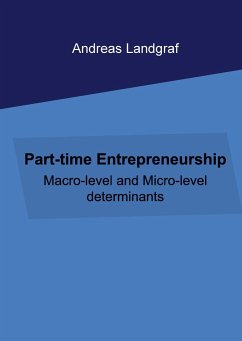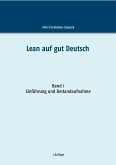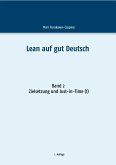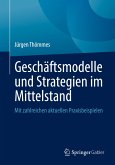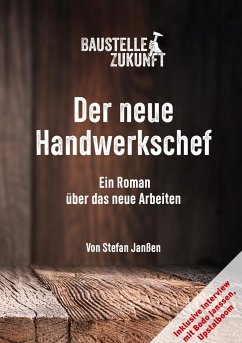Part-time entrepreneurship has become increasingly popular and is a rather new field of research. Two important research topics are addressed in this dissertation: (a) the impact of culture on part-time and full-time entrepreneurship and (b) the motivational aspects of the transition from part-time to full-time entrepreneurship. Specifically, this dissertation advances prior research by highlighting the direct and indirect differential impact of macro-level societal culture on part-time and full-time entrepreneurship. Gender egalitarianism, uncertainty avoidance and future orientation have a significantly stronger impact on full-time than on part-time entrepreneurship. Furthermore the moderating impact of societal culture on micro-level relationships for both forms of entrepreneurship is explored. The age-old and well-established relationship between education and entrepreneurial activity is moderated by different forms of collectivism for part-time and full-time entrepreneurship. Regarding the motivation of part-time entrepreneurs to transition to full-time entrepreneurship, the entrepreneurial motives of self-realization and independence are significantly positively associated with the transition, whereas the entrepreneurial motives of income supplementation and recognition are significantly negatively associated with the transition. This dissertation advances academic research by indicating conceptual differences between part-time and full-time entrepreneurship in a multi country setting and by showing that both forms of entrepreneurship are impacted through different cultural mechanisms. Based on the findings, policy makers can identify the direct and indirect impact of societal culture on part-time and full-time entrepreneurship. As a result, policy makers can better target support and transition programs to foster entrepreneurial activity.
Hinweis: Dieser Artikel kann nur an eine deutsche Lieferadresse ausgeliefert werden.
Hinweis: Dieser Artikel kann nur an eine deutsche Lieferadresse ausgeliefert werden.

